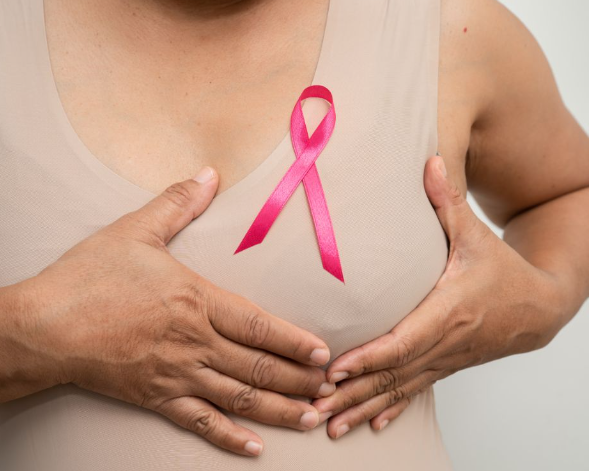10 Essential Actions Following a Breast Cancer Diagnosis, According to Experts
Receiving a breast cancer diagnosis can be overwhelming, leaving patients feeling anxious and uncertain about the future. However, taking proactive steps soon after the diagnosis can be crucial in managing both physical and emotional health. Experts suggest a variety of measures to empower patients during this challenging time. Here is a comprehensive guide to 10 essential actions to consider following a breast cancer diagnosis.
Understanding Your Diagnosis
The first step in navigating breast cancer is to thoroughly understand your diagnosis. Knowledge is empowering, and gaining a clear understanding of your condition can help you make informed decisions about your treatment and care.
Take the Time to Learn
- Request detailed reports: Ask for a comprehensive pathology report and any other relevant documents.
- Understand the stage and type: Knowing whether your cancer is localized, regional, or has spread helps in strategizing your treatment plan.
- Research reputable sources: Utilize resources like the American Cancer Society or Breastcancer.org for credible information.
Building a Support Network
A strong support system is crucial for anyone battling cancer. Having friends, family, healthcare professionals, and support groups can make a significant difference in your journey to recovery.
Connect with Support Groups
- Join online communities: Websites and social media can offer instant support and information.
- Attend local meetings: In-person discussions can provide comfort and a sense of belonging.
- Involve family and friends: Keep your loved ones informed so they can offer practical and emotional support.
Exploring Treatment Options
The right treatment plan is critical and can greatly influence your prognosis. Collaborating with your healthcare team to explore all available options can lead to the best outcomes.
Discuss with Your Doctor
- Inquire about treatment types: Surgery, chemotherapy, radiation, and hormonal therapy are all potential options.
- Participate in clinical trials: Explore suitable clinical trials that might offer access to cutting-edge treatments.
- Seek second opinions: Gain perspectives from multiple oncologists to ensure a well-rounded understanding.
Addressing Emotional Well-being
Emotional health is often overlooked, yet it is critical during the cancer journey. Coping with anxiety, fear, and depression is part of the healing process.
Consider Counseling and Therapy
- Individual counseling: A therapist can provide personalized support and coping strategies.
- Group therapy sessions: Sharing experiences with others in similar situations can offer solace and inspiration.
- Mindfulness and meditation: Techniques like mindfulness can reduce stress and enhance overall well-being.
Managing Lifestyle Changes
Cancer treatment can bring significant lifestyle alterations. Proactively managing these changes can improve your quality of life and response to treatment.
Incorporate Healthy Habits
- Maintain a balanced diet: Focus on nutrition-rich foods to support your body during treatment.
- Stay active: Engage in regular, moderate exercise to boost energy and mood.
- Adequate rest: Ensure you get plenty of rest and sleep to facilitate healing.
Financial Planning and Assistance
The financial burden of cancer is a major concern for many patients. Taking early steps to manage healthcare and personal expenses can alleviate stress.
Seek Advice from Financial Professionals
- Understand insurance coverage: Review your policy to determine what treatment expenses it covers.
- Explore financial aid programs: Several non-profits and government programs can provide financial assistance.
- Budgeting for care: Plan for medical, travel, and other related expenses to manage your budget effectively.
Embracing Technological Tools
Technology can be an ally in managing and understanding your breast cancer diagnosis. There are various tools designed to assist patients in tracking their health and treatment progress.
Utilize Health Apps and Platforms
- Track symptoms and side effects: Apps can help you record and manage your symptoms.
- Schedule reminders: Notifications for medications and appointments ensure you stay on track with your treatment.
- Access educational content: Streamlined access to educational resources can keep you informed about your condition.
Preparing for Potential Side Effects
Understanding and preparing for the possible side effects of treatment can empower you to handle them more effectively when they occur.
Communication with Healthcare Providers
- Learn about common side effects: Each treatment type comes with its own set of side effects.
- Develop a management plan: Work with your medical team to create strategies to mitigate these effects.
- Report new symptoms: Promptly communicate any new or unexpected symptoms to your healthcare team.
Maintaining Regular Follow-ups
After the initial round of treatment, it’s important to continue regular visits with your medical team. Consistent monitoring can catch any changes or recurrences early.
Stay Vigilant and Consistent
- Follow your follow-up schedule: Adhere to a regular schedule for tests and scans.
- Monitor any new symptoms: Report any unusual changes in your health to your doctor immediately.
- Discuss long-term strategies: Keeping abreast of long-term care strategies can be crucial for ongoing health.
Advocacy and Raising Awareness
Lastly, engaging in advocacy can provide a sense of purpose and help you connect with others fighting the same battle.
Share Your Journey
- Participate in awareness campaigns: Join local or global movements to raise breast cancer awareness.
- Volunteer for research initiatives: Contribute to cancer research by participating in studies.
- Use your voice: Share your story to inspire and educate others about your experiences.
Navigating a breast cancer diagnosis is challenging, but by taking these essential actions, patients can feel more empowered and supported. Remember, you are not alone in this journey.









